calsfoundation@cals.org
Yellville (Marion County)
County Seat
| Latitude and Longitude: | 36º13’34″N 092º41’05″W |
| Elevation: | 640 feet |
| Area: | 2.48 square miles (2020 Census) |
| Population: | 1,178 (2020 Census) |
| Incorporation Date: | January 3, 1855 |
Historical Population as per the U.S. Census:
|
1810 |
1820 |
1830 |
1840 |
1850 |
1860 |
1870 |
1880 |
1890 |
1900 |
|
– |
– |
– |
– |
– |
– |
96 |
345 |
263 |
578 |
|
1910 |
1920 |
1930 |
1940 |
1950 |
1960 |
1970 |
1980 |
1990 |
2000 |
|
463 |
615 |
478 |
546 |
697 |
636 |
860 |
1,044 |
1,181 |
1,312 |
|
2010 |
2020 |
|
|
|
|
|
|
|
|
|
1,204 |
1,178 |
|
|
|
|
|
|
|
|
The city of Yellville is the county seat of Marion County in northern Arkansas. Located on Crooked Creek, Yellville has never become a major metropolis, but a family duel in the nineteenth century and a turkey festival begun in the twentieth century have given the city some statewide and even national attention.
Louisiana Purchase through Early Statehood
In 1817, the federal government declared parts of the White River and Arkansas River valleys in northern Arkansas a Cherokee reservation. The Cherokee invited other tribes to join them on their land, and the Shawnee of the Ohio River valley were one group who accepted the invitation. One of their settlements was on Crooked Creek, about twenty miles from the White River. An estimated 300 Shawnee lived there until 1828, when a new treaty moved the Cherokee farther west, opening northern Arkansas to settlement by Americans of European descent. The Shawnee also left, moving to Texas and to Indian Territory (now Oklahoma). White settlers began using the houses and farms that the Shawnee had built, calling the settlement Shawneetown.
Marion County was created in 1836, the same year that Arkansas became a state. Shawneetown was designated the county seat, but the residents sought a new name. They chose to name the city Yellville in honor of Archibald Yell, the new state’s first representative in the U.S. Congress. Yell was elected Arkansas’s second governor in 1840. A community tradition states that Yell wanted the city to be named for him and offered city leaders fifty dollars for the honor, but he never paid them. In 2005, two of Yell’s descendants—David Yell from Michigan and Sonny Yell from Georgia—visited Yellville and gave the city a gift of fifty dollars in the name of their ancestor.
The post office at Yellville was established in 1831; the first postmaster was William Kavanaugh, who was also the county clerk. Yellville’s early fame, though, resulted from a feud between the Everett and Tutt families of Marion County. What began as a political competition for local and county offices became a violent fight that stretched from the presidential campaign of 1844 until the death of Hansford “Hamp” Tutt in 1850. Marion County held 300 registered voters at the time, and it has been said that every one of them was forced to take one side or the other during the conflict. At its height in 1849, the strife of the Tutt-Everett War was so severe that Governor John Roane had to send the state militia into the county to arrest the combatants (though their families released them from prison after the militia left).
Early schools in Yellville included a summer subscription school taught by Major Tate in 1853; Bluff Springs Academy, which opened on January 18, 1855; and Crooked Creek Male Academy, which opened on February 4, 1859. None of the schools survived the violence of the Civil War. One of the first stores in the city was a log trading post operated by Tomps Murphy around 1837. Murphy traded furs and other goods for merchandise, transporting them to Pocahontas (Randolph County). Another early store was J. P. Vance & Company, opened by J. H. Berry in 1851. Yellville was incorporated in 1855, although the incorporation had to be renewed after the war because city elections had not been held for several years.
Civil War through the Gilded Age
Like many citizens of northern Arkansas, the people of Marion County were not enthusiastic about the secession of Arkansas at the beginning of the Civil War. Camp Adams, a Confederate Camp, was situated south of the city during the winter of 1862–63, but Union forces held the city, conscripting local buildings such as the Berry House (which still stands today) for a hospital and horse stable. Before the end of the war, much of Yellville was destroyed by fire, including the county courthouse.
The city of Yellville was slow to rebuild after the war. Berry returned with his son-in-law, John Shackleford Cowdrey, and the two opened a store in 1868, which they called J. H. Berry & Company. The incorporation of the city was reestablished in 1872. A second county courthouse, which had been built after the end of the war, burned down in 1887. A newspaper, the Mountain Echo, began publication in Yellville in 1885; it is now published in Flippin (Marion County). The Male and Female Academy, run by the Methodist Church, opened in 1888. It was followed by Yellville School, which opened in 1890. A third county courthouse was built in 1890 and burned down in 1899.
Early Twentieth Century
The Miners and Citizens Bank of Yellville opened on December 13, 1902, followed by the Bank of Yellville, which opened on May 25, 1903. Architect George E. McDonald designed the fourth county courthouse, built in 1905. Suburb community Summit was incorporated in 1917. Yellville’s first electric plant came into being in 1916. It was used to power Ike Emery Sr.’s businesses, consisting of a flour mill, cotton gin, bottling plant, and ice plant. Emery sold electric power to the citizens of Yellville, but electric power was available only from sundown until 11:00 p.m. until 1925. Arkansas Power and Light (AP&L) acquired the business in 1928. In the early 1930s, Yellville was the only city in Arkansas with a city government composed entirely of women: Mayor Virge Walton, Treasurer O’Beta Carson, Recorder Lena Nowlin, and council members Abbie Cowdrey, Alma Berry, Elnora Record, Mag Hutchinson, and Doll Thompson.
During the Depression, Citizen’s Bank closed. A library was assembled by the Works Progress Administration (WPA); in 1944, it became part of a five-county library association for the region of north-central Arkansas. The county’s fourth courthouse burned on January 12, 1943, damaging part of the building but not destroying it entirely.
World War II through the Modern Era
The county’s fifth and current county courthouse was completed in 1944, on the same site of the previous and using insurance money from the previous fire. Efforts were made to keep much of the same architectural style and details of the previous.
After World War II, the American Legion post in Yellville elected to hold a festival celebrating the wild turkey. Wild turkey hunting had recently been suspended in Arkansas because hunters had depleted the species. The “National Wild Turkey Calling Contest and Turkey Trot” (usually called simply the Turkey Trot) is held every October in Yellville on the second Friday and Saturday of the month. It includes a parade, a five-kilometer run (the “Turkey Trot Trot”), street dances, and food. Part of the celebration has traditionally included dropping live wild turkeys from low-flying planes in an effort to replenish the species. Reportedly, the effort has, on occasion, killed rather than freed the birds. National attention was given to the turkey drop, including a memorable 1978 episode of the sitcom WKRP in Cincinnati. Current literature about the Turkey Trot carefully avoids mention of the turkey drop, but other sources report that the event, which was discontinued in 1989, has been quietly reinstated, happening south of town during the festival but never publicized.
Yellville is fourteen miles from Bull Shoals Lake. The lake was created by the Bull Shoals Dam, which was built between 1947 and 1951. Although it has not benefited from tourism dollars generated by the lake nearly as much as communities such as Bull Shoals (Marion County) or Diamond City (Boone County), Yellville has motels that serve people visiting the area, and many Yellville residents are involved in tourism-oriented jobs related to the recreational lake.
Local industries have been largely agricultural, including fur trading, as well as the growing of cotton, tomatoes, strawberries, and timber. Southern Marion County is known for its cedar wood. Some small manufacturing and information technology resources have been added to Yellville in the twenty-first century. From 1994 to 2007, Ampeg bass guitar amplifiers were manufactured in Yellville. Other manufacturers still in operation as of 2011 include Altrionic Research, which creates equipment for broadcasting and communications, and Shawnee Manufacturing, which builds and repairs boats. In November 2011, American Stitchoo—which makes automotive and non-automotive products which are stitched, stuffed, heat sealed, screen printed or embroidered—reopened its Yellville factory.
Estes-Williams American Legion Hut 61 was erected in 1933–1934 and was added to the National Register of Historic Places in 2001.
The most famous resident of Yellville is Violet Hensley, a fiddler who established a strong tradition in Ozark Folk music. She was awarded the “Arkansas Living Treasure Award” in 2004.
For additional information:
Berry, Earl. History of Marion County. Yellville, AR: Marion County Historical Association, 1977.
Flippin, W. B. “The Tutt and Everett War in Marion County.” Arkansas Historical Quarterly 17 (Summer 1958): 155–163.
Yellville Area Chamber of Commerce. http://www.yellvillechamber.com/ (accessed September 30, 2022).
Steven Teske
CALS Encyclopedia of Arkansas
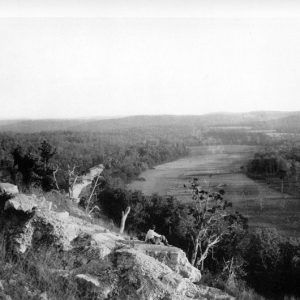
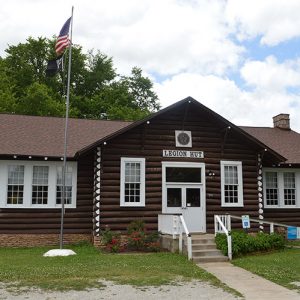
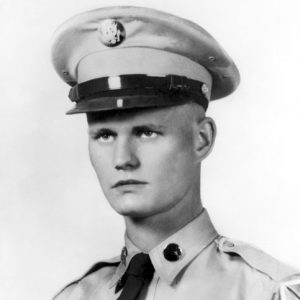
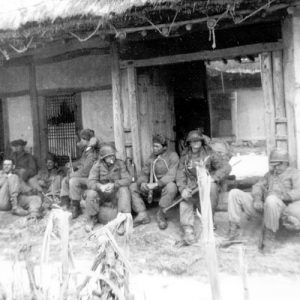
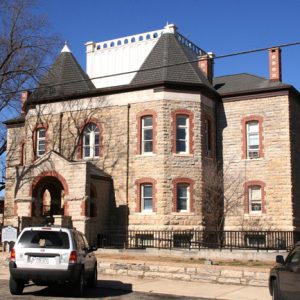
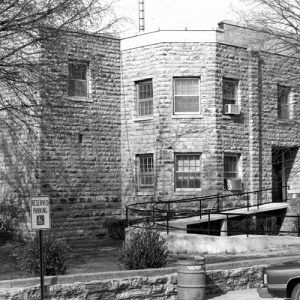
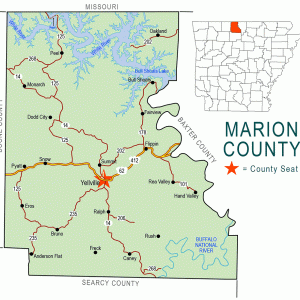
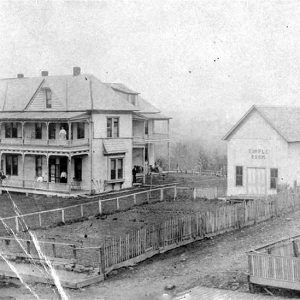
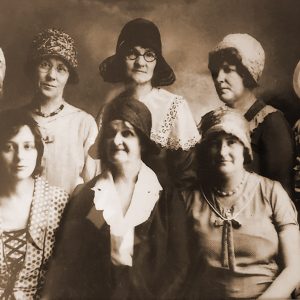
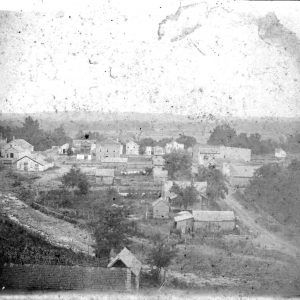
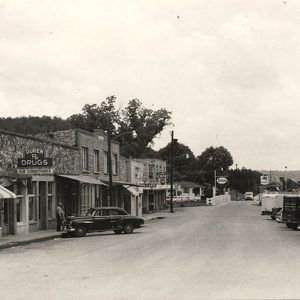
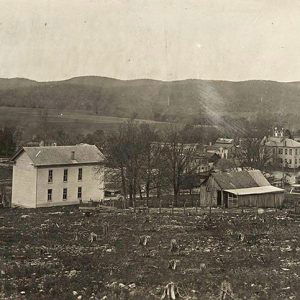




Comments
No comments on this entry yet.